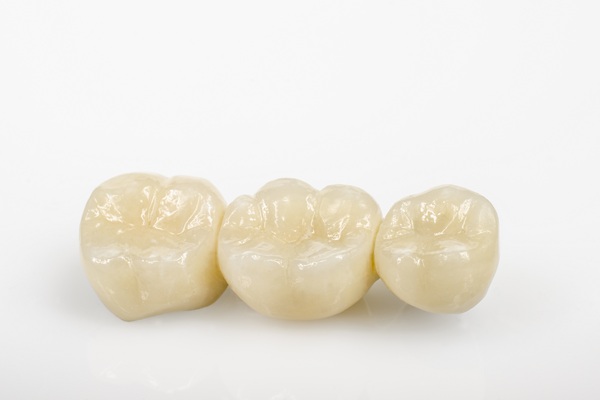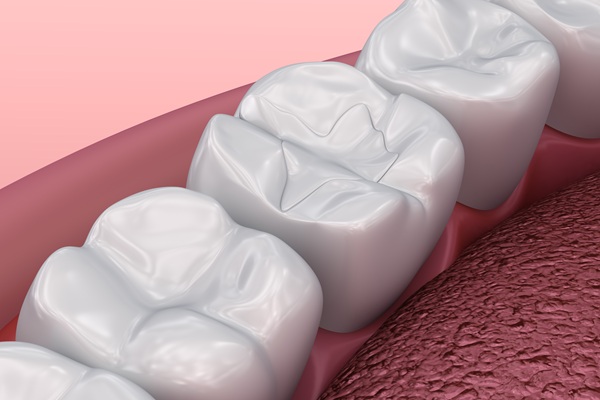4 Preventive Treatment Options from a General Dentist

A general dentist deals with the diagnosis, management, and treatment of oral health issues. Also, this type of dental professional provides routine care to help patients maintain good dental health. This routine care includes preventive treatments that help guard against the occurrence of cavities, injuries, and infections.
4 Preventive treatments from a general dentist
Preventive treatments in general dentistry have immense benefits in the long term. They help patients of different age groups keep their oral cavity free of issues. Knowing the various treatment options available can help patients make the best choice for their oral health during their next dental appointment.
1. Deep dental cleaning
Regular dental cleaning is available to patients of all ages. The procedure is an excellent way to prevent the occurrence of infection and cavities. It involves the careful removal of plaque or tartar from the teeth. Most dental professionals recommend undergoing cleaning at least twice every year. However, in some cases, some patients need to undergo more regular cleaning. The procedure is thorough and removes debris that may be hard to clean from normal brushing and flossing at home.
2. Fluoride treatment
Fluoride treatment is one of the most common preventive care treatments. Fluoride is a mineral agent that helps to strengthen the enamel against cavity-causing bacteria and prevent tooth decay. Dental professionals recommend getting fluoride treatments regularly to keep the teeth healthy. This also includes the use of fluoride-based toothpaste and mouthwashes at home. Fluoride treatment at the dental office is easy and entails having the patient wear a tray filled with the fluoride solution or having the fluoride applied directly onto the enamel.
3. Dental sealants
This procedure is a preventive dental treatment that the dentist might recommend in order to protect the tooth from decay. Some teeth have deep pits and fissures that are hard to clean with a toothbrush, making them prone to bacterial attack and possible decay and infection. The dental sealant material is made of clear or tooth-colored material and is painted over the chewing surface of the back teeth (premolars and molars).
4. Mouthguards
This is a custom-made oral device provided by the dentist to protect the teeth against damage. It is usually recommended for patients who participate in contact sports. Mouthguards are also available for patients dealing with teeth grinding (also known as bruxism), a condition that can cause the deterioration of the teeth enamel and which contributes to temporomandibular joint (TMJ) disorder.
The bottom line
Regardless of the severity of any current dental health issue, there is never a bad time to undergo preventive care treatment. Ideally, preventive measures for oral health should start from childhood. Taking steps to prevent oral health concerns helps to preserve natural teeth and gums. You will also save yourself from experiencing the pain, discomfort, and complications caused by oral diseases.
Understanding the consequences of poor oral health can motivate patients to visit the dentist for preventive treatment. Our general dentist can address any questions or concerns you have about preventive treatment. Contact our dental office today to get started.
Request an appointment here: https://www.myddsny.com or call Inna Goykman-Amir DDS at (718) 416-6364 for an appointment in our Brooklyn office.
Check out what others are saying about our dental services on Yelp: General Dentist in Brooklyn, NY.
Related Posts
In general dentistry, fluoride treatments are common. Fluoride is a mineral found in bones and teeth, as well as water, plants, soil, rocks, and air. When used by dentists, fluoride strengthens tooth enamel. Therefore, dentists generally use fluoride as a preventative treatment against cavities. Additionally, fluoride can be found in most public water supplies. In…
Your experienced general dentist can repair your cavities. Assessing your teeth will come first. Then, the dentist will discuss the treatment options with you. Knowing which option can help you the most can prepare you for the visit. Here are the details about the different cavity treatments that your general dentist can discuss with you.The…
General dentistry offices are responsible for the primary dental care of people of all ages. Dentists perform routine care and maintenance to keep your smile healthy and beautiful. The visits also help dentists diagnose dental issues that may not have obvious symptoms yet. Many people wonder how often they should see their dentist. The answer…
A dental crown is one of the most common types of treatment in general dentist. It is usually applied when a tooth has become damaged and requires extra support to maintain functionality. A dentist may recommend a crown if there is no other way to save the tooth. Before agreeing to the procedure, patients should…


